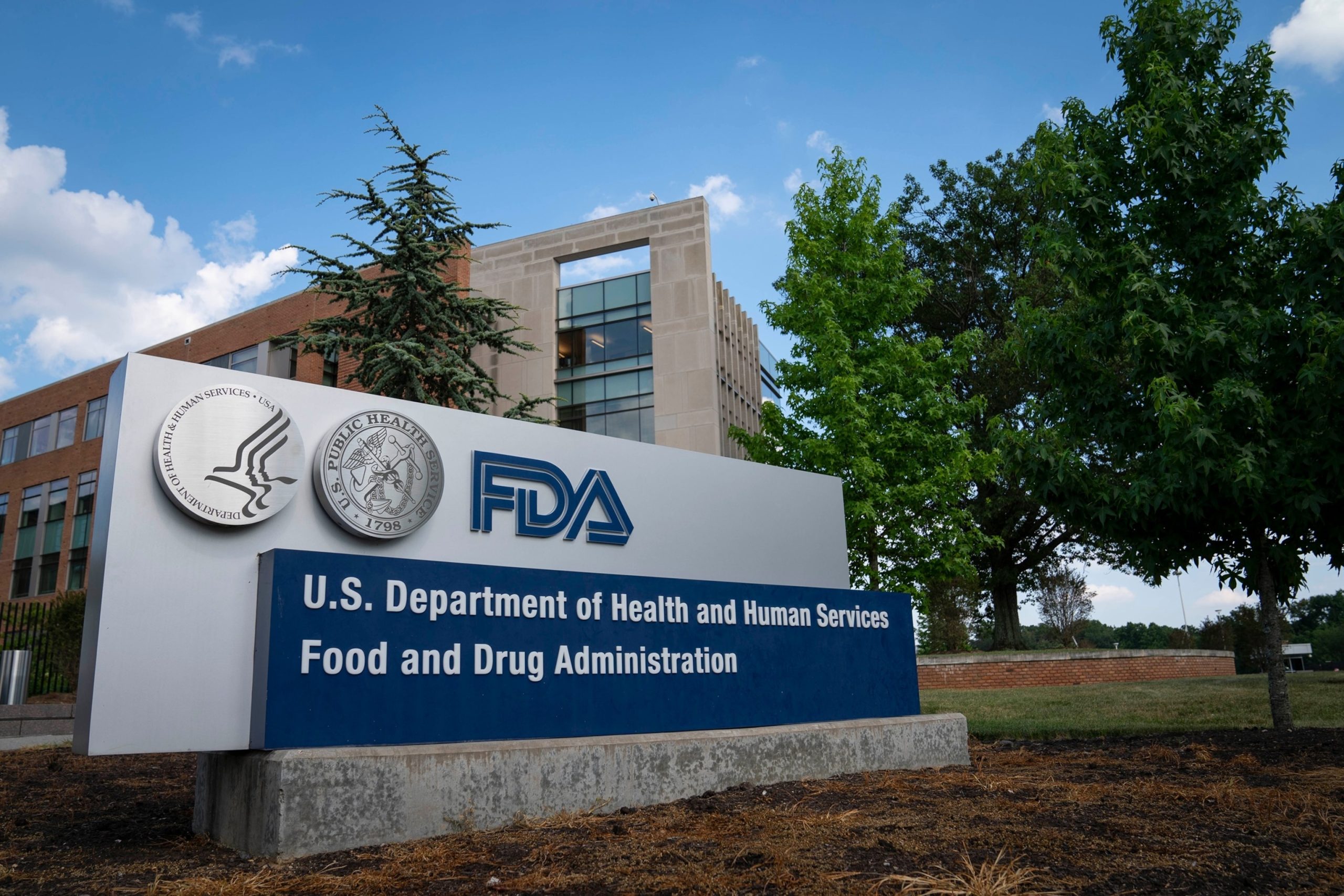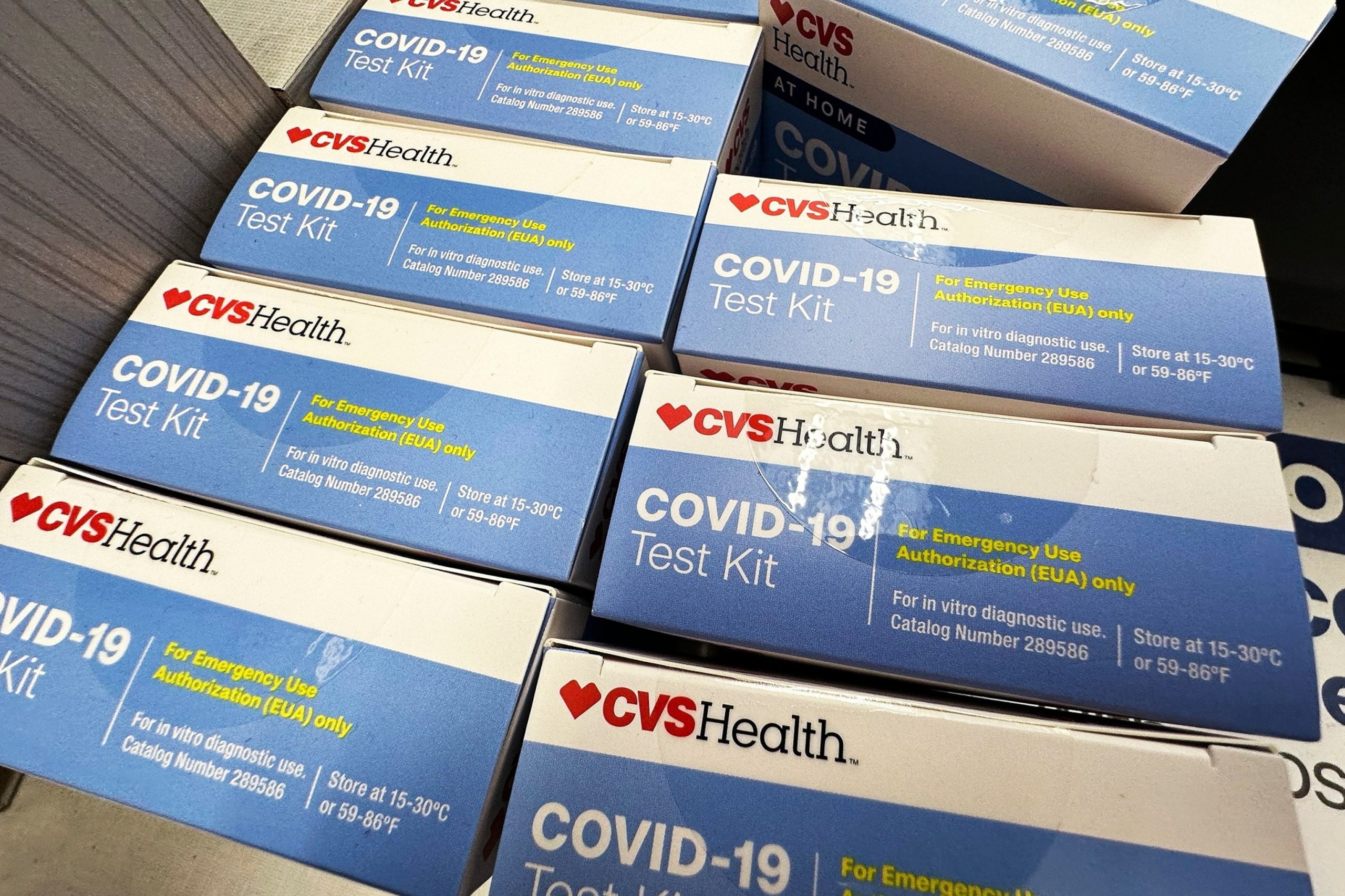The U.S. Surgeon General, Dr. Vivek Murthy, issued a new advisory on Tuesday declaring gun violence a public health crisis.
In his announcement, Murthy also called for an evidence-based approach to public health change and a ban on assault weapons and large-capacity magazines for civilian use.
“Firearm violence is an urgent public health crisis that has led to loss of life, unimaginable pain, and profound grief for far too many Americans,” Murthy said in a statement.
Ten national medical organizations, including the American Medical Association, American Academy of Pediatrics, American College of Surgeons, American Public Health Association and the YWCA, issued statements of support in a press release distributed by the Office of the Surgeon General.
“Across the country, physicians everywhere treat patients and families afflicted by firearm violence,” said American Medical Association President Bruce A. Scott, MD, in a statement.

A rifle gun display is seen on the wall of a gun shop in Colorado.
STOCK PHOTO/Getty Images
Gun violence is now the leading cause of death in the U.S. among kids and teens. Gun-related suicides have risen among all age groups from 2012 to 2022; the greatest rise has been among 10–14-year-olds, according to the advisory.
Rates of gun-related deaths among kids 1-19 years old in the U.S. are astronomically high and significantly higher than in other high-income countries.
“Pediatricians have long understood that gun violence is a public health threat to children and that its impact on families and communities can be devastating and long-lasting,” said American Academy of Pediatrics President Ben Hoffman, MD, FAAP, in a statement.
Over 50% of Americans say they or their family have experienced a firearm-related incident in their lifetime, and about 60% of U.S. adults say that they worry “sometimes,” “almost every day,” or “every day” about a loved one being a victim of firearm violence, according to the advisory.
The advisory also shows how certain groups are disproportionally impacted by gun violence, including people who are Black, American Indian, Alaskan Natives and veterans.
The advisory says the impact of firearm violence goes beyond deaths and injuries; it leads to cascading harm and collective trauma across society and threatens the mental and physical health of young people’s wellbeing, which warrants heightened attention and action.
“We don’t have to continue down this path, and we don’t have to subject our children to the ongoing horror of firearm violence in America. All Americans deserve to live their lives free from firearm violence, as well as from the fear and devastation that it brings. It will take the collective commitment of our nation to turn the tide on firearm violence,” Murthy said.
The advisory outlines an evidence-informed public health approach with prevention strategies that public health leaders and policymakers can consider to reduce and prevent firearm-related death and injury, including by increasing research investments and data collection, implementing risk reduction strategies and engaging communities.
The report also calls for a ban on assault weapons and large-capacity magazines for civilian use and says firearms should be treated like other consumer products to enhance and standardize safety.
“Gun violence is a national tragedy. It’s a serious public health problem that is highly preventable,” said American Public Health Association Executive Director Georges C. Benjamin, MD in a statement.
Dr. Jade A Cobern, M.D., MPH, a licensed and practicing physician board-certified in pediatrics and preventive medicine, is a medical fellow of the ABC News Medical Unit.
US Surgeon General Vivek Murthy recently declared gun violence a public health crisis in America, highlighting the urgent need for action to address this pressing issue. In a statement released by the Surgeon General’s office, Murthy emphasized the devastating impact of gun violence on individuals, families, and communities across the country.
According to the Centers for Disease Control and Prevention (CDC), gun violence is a leading cause of death in the United States, with more than 40,000 people killed by firearms each year. In addition to the tragic loss of life, gun violence also results in thousands of injuries and long-term physical and psychological trauma for survivors.
Murthy’s declaration comes at a time when gun violence is on the rise in many parts of the country, fueled by factors such as easy access to firearms, social and economic disparities, and a lack of comprehensive gun control measures. The Surgeon General’s office is calling for a multi-faceted approach to addressing gun violence, including increased funding for research on gun violence prevention, improved access to mental health services, and stronger gun control laws.
In his statement, Murthy stressed the need for a comprehensive public health approach to addressing gun violence, similar to efforts to combat other public health crises such as obesity, smoking, and infectious diseases. This approach would involve collaboration between government agencies, healthcare providers, community organizations, and other stakeholders to develop evidence-based strategies for preventing gun violence and supporting those affected by it.
The Surgeon General’s declaration has been met with both support and criticism from various groups. Proponents of stricter gun control measures have praised Murthy for bringing attention to the issue and advocating for action, while opponents argue that gun violence is a complex social issue that cannot be solved through legislation alone.
Despite the challenges ahead, Murthy’s declaration signals a significant step forward in recognizing gun violence as a public health crisis in America. By raising awareness of the issue and calling for a coordinated response, the Surgeon General’s office is taking an important first step towards preventing further loss of life and promoting the health and well-being of all Americans.



